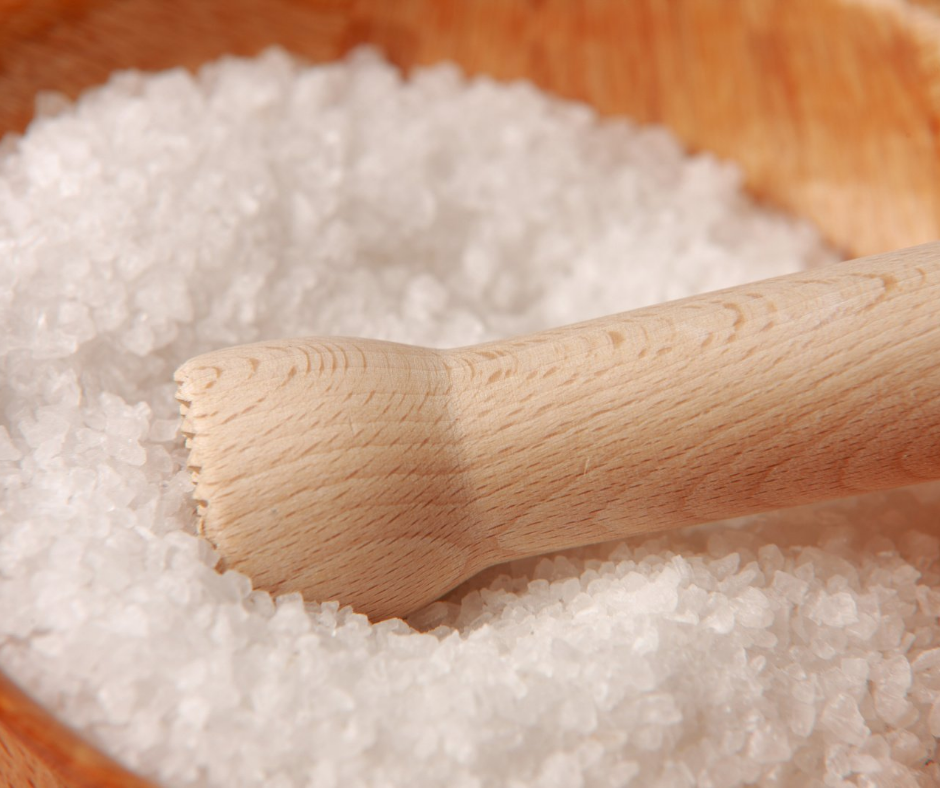Are you curious about the impact of Epsom salt on septic tanks? Look no further! This article will explore the effects of Epsom salt on your septic tank system, shedding light on whether it helps or harms the overall functioning. Whether you’re a concerned homeowner or simply want to expand your knowledge, we’ve got you covered. So let’s dive into the world of septic tanks and Epsom salt!

Understanding Epsom Salt
Epsom salt, also known as magnesium sulfate, is a versatile and widely used compound with a range of benefits and applications. Understanding its composition and properties is crucial in order to comprehend its impact on septic tanks.
Composition and Properties
Epsom salt is composed of magnesium, sulfur, and oxygen, represented chemically as MgSO4. It is a white, crystalline substance that easily dissolves in water. The unique composition of Epsom salt gives it its various properties, making it useful in different contexts.
Popular Uses
Epsom salt is popular for its numerous therapeutic uses, such as relieving muscle aches, soothing skin conditions, and detoxifying the body. Additionally, it is used in gardening as a natural fertilizer and pest deterrent. However, its impact on septic tanks is a matter of concern and requires further exploration.
Basic Functioning of a Septic Tank
In order to understand the effects of Epsom salt on septic tanks, it is important to have a basic understanding of how septic tanks function.
Purpose of a Septic Tank
A septic tank plays a crucial role in the wastewater treatment process for homes and businesses that are not connected to a public sewage system. Its main purpose is to separate solids from wastewater, allowing the liquid portion to flow into the drain field for further filtration.
Components of a Septic Tank
A typical septic tank consists of two main components: the tank itself and the drain field. The tank is a watertight container made of concrete, fiberglass, or plastic, and it receives wastewater from the household plumbing system. The drain field, also known as the leach field, is an underground area where the liquid effluent is distributed and naturally filtered by the soil.
Biochemical Reactions in a Septic Tank
Inside the septic tank, a series of biochemical reactions occur to break down the organic matter in the wastewater. Bacteria and other microorganisms present in the tank decompose the solids, converting them into liquid and gas components. This process is essential for the proper functioning of a septic tank and the overall wastewater treatment system.

Effects of Epsom Salt on Septic Tanks
While Epsom salt has various beneficial properties, its impact on septic tanks can be detrimental. The effects can be categorized into physical, chemical, and biological impacts.
Physical Impact
The physical impact of Epsom salt on septic tanks primarily involves the presence of solid residue.
Presence of Solid Residue
Epsom salt, when introduced into a septic tank, can contribute to the accumulation of solid residue. This residue can accumulate on the bottom of the tank and reduce its capacity to store wastewater effectively.
Clogging of Pipes and Drain Field
The accumulation of solid residue can also lead to the clogging of pipes and the drain field. This can cause backups and restrict the flow of wastewater, ultimately affecting the overall functioning of the septic system.
Overloading the Tank
In some cases, the excessive use of Epsom salt can lead to an overload of the septic tank. This occurs when the tank fills up faster than it can properly undergo the wastewater treatment process, potentially leading to system failures and costly repairs.
Chemical Impact on Septic Tanks
Epsom salt can have various chemical impacts on septic tanks, affecting the overall balance of the system.
Alters pH Balance
One of the chemical impacts of Epsom salt is the alteration of the pH balance within the septic tank. Epsom salt has a slightly acidic pH, which can disrupt the natural alkaline environment required for optimal microbial activity.
Interferes with Microbial Activity
Microbial activity is vital for the breakdown of organic matter in a septic tank. The introduction of Epsom salt can interfere with this process by inhibiting the growth and activity of beneficial bacteria. This disruption can lead to reduced efficiency in the decomposition of solids.
Reduces Efficiency of Enzyme Breakdown
Enzymes play a crucial role in the breakdown of organic matter in a septic tank. Epsom salt can reduce the efficiency of enzyme breakdown, further hindering the wastewater treatment process.

Biological Impact on Septic Tanks
The introduction of Epsom salt into a septic tank can have significant biological impacts, affecting the overall balance of the system.
Alters Microbial Balance
The presence of Epsom salt can disrupt the natural microbial balance within a septic tank. This can lead to a decrease in the population of beneficial bacteria responsible for breaking down organic matter, ultimately affecting the overall effectiveness of the system.
Decreases Decomposition of Organic Matter
Epsom salt can interfere with the decomposition of organic matter by inhibiting microbial activity. As a result, the overall decomposition process within the septic tank is slowed down, potentially leading to the accumulation of solids and reduced efficiency of the tank.
Reduces Natural Bacterial Population
The introduction of Epsom salt can diminish the natural bacterial population in a septic tank. This depletion can further compromise the system’s ability to efficiently decompose organic matter, potentially resulting in system failures and costly repairs.
Common Myths and Misconceptions
There are several myths and misconceptions surrounding the use of Epsom salt in septic tanks. It is important to dispel these misconceptions for a better understanding of the potential impact of Epsom salt on septic systems.
Epsom Salt as a Cleaning Agent
Contrary to popular belief, Epsom salt is not an effective cleaning agent for septic tanks. Its use can instead lead to negative consequences, as previously discussed.
Epsom Salt Boosts Septic Tank Performance
While Epsom salt has various beneficial properties, it does not boost the performance of a septic tank. In fact, its introduction into the system can hinder its ability to properly treat wastewater.
Epsom Salt Eliminates Odor
Epsom salt does not eliminate odors in septic systems. Proper maintenance and regular pumping are necessary to address odor issues and maintain a healthy septic system.

Eco-friendly Alternatives to Epsom Salt
To promote a healthy septic system without the potential negative impacts of Epsom salt, there are alternative options available.
Natural Enzyme Additives
Natural enzyme additives can be used to promote the decomposition of organic matter in a septic tank. These additives contain beneficial bacteria and enzymes that aid in the breakdown of solids, ensuring the proper functioning of the system.
Biodegradable Cleaning Products
Switching to biodegradable cleaning products can help maintain a healthy septic system. These products are designed to be environmentally friendly and do not contain harmful chemicals that can disrupt the balance of a septic tank.
Maintaining a Healthy Septic System
Regular maintenance, including pumping, inspections, and proper waste disposal, is crucial for a healthy septic system. Following best practices and guidelines provided by septic system professionals can help ensure the longevity and efficiency of your septic system.
Proper Use and Disposal of Epsom Salt
If you still wish to use Epsom salt for its various beneficial properties, it is important to do so responsibly to minimize the potential negative impacts on your septic tank.
Safe Household Applications
Epsom salt can still be safely used for various household applications that do not involve direct contact with the septic system. Whether it’s for therapeutic purposes, gardening, or household cleaning, ensure that any excess Epsom salt is disposed of properly to prevent its introduction into the septic tank.
Proper Disposal Methods
When disposing of Epsom salt, it is recommended to dilute it with water and pour it down a drain or toilet that is connected to a public sewage system. This ensures that the Epsom salt is properly treated and does not enter the septic tank or negatively impact the overall wastewater treatment process.

Conclusion
Understanding the impact of Epsom salt on septic tanks is crucial for maintaining a healthy and efficient wastewater treatment system. While Epsom salt has beneficial properties, its introduction into a septic tank can have negative physical, chemical, and biological impacts. By exploring alternatives and following proper use and disposal methods, you can promote a healthy septic system and ensure the longevity and effectiveness of your septic tank.
